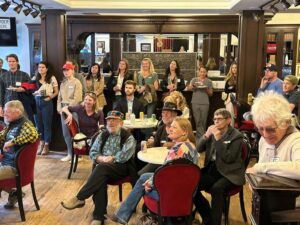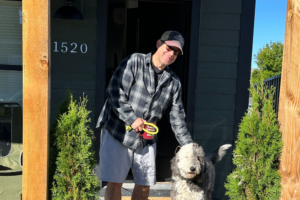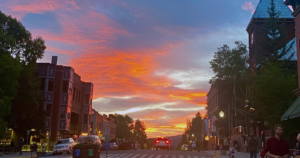The COVID response is still front and center of our work here at the Foundation; however, the awareness of recent racial injustices have us re-examining equity issues throughout our work and organization.
We have shifted from a weekly COVD update to our regular newsletter. With the newsletter we wanted to share some of our other on-going work in an expanded format. Also, we wanted to announce that similar to many businesses, we are gradually re-opening our Telluride office. We have a rotating staff, trying to get back some level of normal operations, working within the bounds of health and safety.
Overall Response Update
The demand for COVID Good Neighbor and nonprofit emergency grant assistance has slowed. We think this is attributed to the many federal benefits kicking in and some businesses re-hiring. These benefits include CARES Act payments such as the PPP loans to businesses and nonprofits, stimulus checks, and extended unemployment supplements.
However, both COVD and its impacts to individuals, families, and businesses have not gone away. We except to see a new wave of need as businesses re-assess their workforce needs, people roll-off of unemployment around July 24, and the possibility of new infections, which will put additional pressure on our healthcare centers.
We met the initial surge and are well positioned to appropriately react and continue meeting future demand. We have responded to our community’s needs due to the incredible generosity of many donors, particularly part-time residents who have made significant and repeated donations to the Response Fund. A thank you is not enough.
Good Neighbor Assistance and Emergency Grants
As a reminder, the Good Neighbor regional emergency hardship assistance program is for families and individuals experiencing a financial crisis. Good Neighbor provides cash assistance for rent, food, medicine, transportation, and other critical human needs.
As a regional economic hub, San Miguel County has a large Latinx population, including full-time residents, seasonal workers, and those who commute into the County for work. We estimate that 30% of County residents/workers are Latinx. The inequities affecting the Latinx community are significant, including few bilingual providers, difficulties navigating disparate systems, discrimination, and limited access to public assistance benefits. Good Neighbor supports the undocumented population and those in mixed documentation status households who are not eligible for government programs or CARES Act funding.
We are prioritizing equity in managing Good Neighbor (GN) assistance by:
- Using a trusted, Latinx-focused entity to manage the GN work.
- In-take staff are bilingual and bicultural.
- Staff live in the communities where they work and are known and trusted by clients.
- In-take staff take the time to listen to applicants and provide additional financial assistance, connecting individuals to additional resources like energy assistance grants and food assistance; staff provides a lot of hand-holding, ensuring everyone gets the most cash support that they qualify for and the help they need to apply for GN funding.
- Applications and guidelines are in Spanish.
- Applications can be completed on-line, either by paper applications or by a phone interview if needed.
- Collaboration with organizations working directly with vulnerable populations to inform them of the GN assistance.
- GN is open to people who live or work in the region, including San Miguel, Ouray, west Montrose counties, and the Town of Rico; many people work in Telluride but cannot afford to live there and commute from as far as two hours away. As part of our workforce impacted by COVID related layoffs, these people also qualify for GN assistance.
- GN serves the communities surrounding Telluride that are dependent on the Telluride economy; many of these areas are extremely rural and low income with high levels of poverty.
From mid-March through June 18, we received GN 300 requests, funded, or are in the process of funding, 260 Good Neighbor clients for a total of $470,000. This amount includes $15,000 in mental health support services. As breakdown of needs funded includes rent or mortgage assistance (77%); transportation assistance (6%); mental health services (4%); other medical expenses (3%); and food expenses (3%).
To learn more about support for families and individuals please click here.
Response Fundraising
With a large and small contributions coming in daily, we have raised $978,000 for the Response Fund!! The generosity and compassion by everyone are simply extraordinary.
We have received donations from $20 to $100,000 over the past two months. The support for the most vulnerable in our community has been just incredible. Thank You! To learn more about the Response Fund click here.
In addition, the Response Fund has funded almost $300,000 in emergency nonprofit grants to the three regional health clinics, internet access for distance learning, COVID volunteer organizing, school districts to provide children’s meals, and the regional food banks.
More Information
Please click HERE to donate or contact Katie Singer at (970)729-1807 or katie@telluridefoundation.org
Thank you and please stay well and safe.


